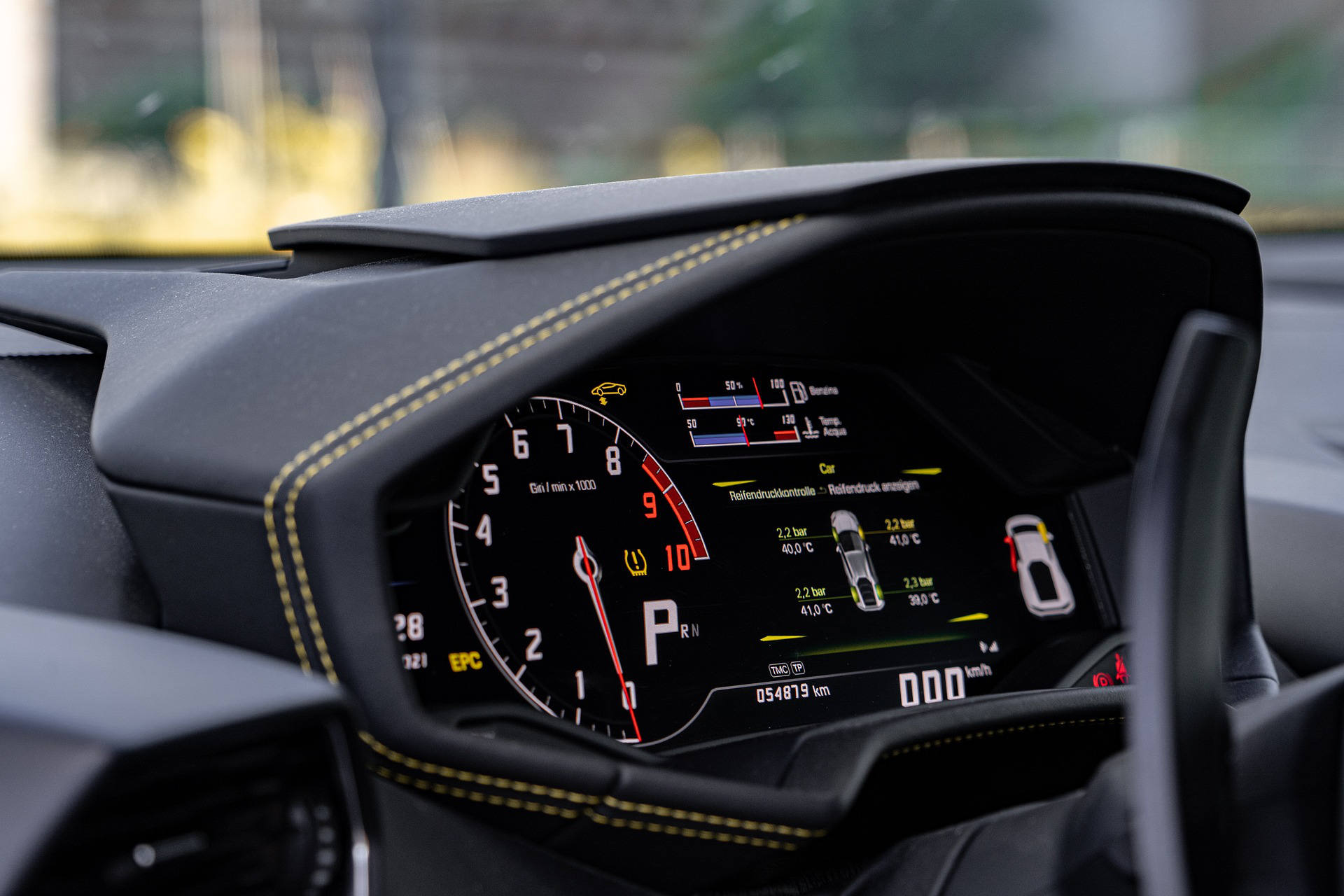
The Anti-Lock Brake System
The anti-lock brake system (ABS) is an essential safety component found in the majority of contemporary automobiles. ABS works to stop the wheels from seizing during intense braking, especially in critical situations. When a driver slams on the brakes, the wheels can sometimes stop rotating, causing the car to lose control and skid. ABS intervenes by automatically modulating brake pressure to allow the wheels to keep turning, thus helping maintain vehicle control.
In an emergency, ABS allows the driver to steer while braking, even under challenging conditions. While ABS doesn’t necessarily reduce a car’s stopping distance, it plays a vital role in keeping the vehicle stable and preventing accidents. Despite its importance, the ABS isn’t infallible and can sometimes malfunction, leading to the ABS warning light appearing on your dashboard.
Can I Still Drive My Car If the ABS Warning Light Is On?
If the ABS warning light comes on, it’s essential to understand whether it’s safe to continue driving. The short answer is yes, you can still drive your car if the ABS light is on, but with caution. The ABS may malfunction, but your car’s standard braking system should still function properly, allowing you to stop the vehicle. However, without the ABS, your wheels are at a higher risk of locking up during hard braking, which could reduce your ability to steer the car in emergencies.
If the ABS light comes on, it’s essential to take it seriously. While you may not experience an immediate danger, continued driving with a malfunctioning ABS system reduces your vehicle’s overall safety, especially in situations requiring quick or forceful braking.
Common Causes of ABS Warning Light Activation
Several issues could trigger the ABS warning light. Recognizing these factors can assist you in assessing the urgency of the situation and whether it’s necessary to have your vehicle inspected right away.
ABS Module Failure
One of the most common reasons the ABS light turns on is a malfunction in the ABS module. The ABS module controls the system and processes data from the wheel speed sensors. If the module becomes corroded or damaged, it can fail to relay crucial data, causing the warning light to activate.
Additionally, the ABS module shares components with your vehicle’s Traction Control System (TCS). A failure in the TCS can affect the ABS, as both systems often use the same diagnostic module.
Symptoms of ABS Module Failure:
- Unresponsive or stiff brake pedal
- A clicking noise when pressing the brakes
- The check engine light may also illuminate
Low Brake Fluid Levels
Brake fluid, including ABS, is essential for the braking system to function adequately. Low fluid levels can compromise braking efficiency, triggering the ABS light. Leaks in the brake fluid system are a common cause of this issue, and if left unchecked, they can lead to reduced braking power or complete brake failure.
Symptoms of Low Brake Fluid:
- Slower braking response
- Grinding noises when applying the brakes
- The brake pedal feels spongy or soft
Faulty Speed Sensors
Each wheel on your vehicle is equipped with a speed sensor that communicates with the ABS. If one of these sensors becomes dirty, damaged, or misaligned, it may fail to send accurate information to the ABS. This malfunction can cause the ABS warning light to activate, as the system can no longer appropriately monitor wheel speeds.
Symptoms of Speed Sensor Failure:
- Traction control light illuminated
- Difficulty stopping or long braking distances
- Loss of control or traction, especially when braking suddenly
Malfunctioning Hydraulic Pump or Valve
The ABS uses a hydraulic pump to adjust brake pressure to each wheel. If the hydraulic pump or valve becomes damaged or malfunctioning, it can prevent the system from regulating brake pressure, triggering the ABS light. Contaminants like dirt or metal shavings in the brake fluid typically cause these problems.
Symptoms of Hydraulic Pump/Valve Failure:
- Inconsistent braking performance
- Reduced braking power that worsens over time
- Brake fluid leakage
Blown Fuse
Like any electrical component, the ABS is protected by fuses. If a fuse blows, it can cause the system to fail, illuminating the ABS light on your dashboard. A blown fuse can often result from an electrical surge or short circuit.
Symptoms of Blown Fuse:
- Both the ABS and engine warning lights may illuminate
- Unresponsive braking or other electrical issues
What to Do If the ABS Light Comes On
If your ABS light turns on while driving, you must be cautious. Since the ABS might not function, you may experience reduced control under heavy braking, which could increase the risk of an accident. Here’s what you can do:
- Drive Carefully: Avoid sudden or heavy braking, and leave extra space between your car and other vehicles. This gives you more time to react in case of an emergency.
- Pull Over and Restart: Turn off the engine, wait a moment, and restart the vehicle. Sometimes, a simple reset can resolve minor sensor glitches.
- Get It Checked: If the ABS light remains on after restarting, it’s time to visit a mechanic for a professional diagnosis and repair. Ignoring the problem could lead to further damage to the braking system.
When Not to Drive
If both the ABS light and the brake warning light appear simultaneously, it’s a serious issue. This could indicate a failure in your braking system that could affect your ability to stop the car properly. In this case, you should not drive the car. Pull to a safe location and arrange a tow to the nearest mechanic.
Conclusion
While you can still drive your car with the ABS warning light on, it’s not advisable to ignore the issue. Your vehicle’s brakes may still work, but the risk of an accident increases without the ABS. Whether the problem is with the ABS module, a sensor, or low brake fluid, it’s essential to address it promptly. Always drive cautiously; if the light stays on, have a professional mechanic inspect your car as soon as possible.

